For the event we had arranged a large pandal in the open area of the Mayapur Goshala. The warmth of the pandal colours and the beautiful flower decorations created a welcoming and festive atmosphere. Guests were received with flower garlands while devotees were chanting in kirtana.
HH Sivarama Maharaja were enlightening us by giving deep insights into the important role mothers are playing.
We were focusing on the five human mothers, leaving mother earth and mother cow aside for the time being. This was because unless we learn to cultivate respect towards our human mothers, it will remain difficult for us to more deeply respect mother cow and mother earth.
However, in spiritual life and its culture where self-realization is the goal of life, it is understood that mothers are the most important, most valued and honored members of human society. In fact, Krsna even gives us five human mothers - one is not enough! These are:
- The physical mother, who is the very first guru for the living entity
- The wife of a brahmana
- The wife of the guru, which also includes our siksa gurus
- The wife of a king, and we could broaden this to managerial leaders
- The nurse, meaning a physical care giver
All these five mothers play a critical role - they are the balancing force within human society, and the selfless care givers on all levels. Unfortunately, in modernity this knowledge of their important role is almost lost and forgotten.
HH Candramauli Maharaja reminded us of Prabhupada's instruction, that our children are not ordinary children, but 'Vaikuntha children'. And in a letter to Arundhati Mataji, Prabhupada clarified the priorities of service: "For you child worship is more important than Deity worship." Mothers are serving as the backbone to society, giving emotional and spiritual strength, nourishment and care to everyone.
HH Bhakti Purusottama Swami highlighted the special and unique position of mothers, who serve in such selfless mood and thus control all family members with their affection. The young daughter is considered the jewel of the family, and once she grows up and is married she becomes the Laxmidevi of the house. The mood and flavor of father's love and mother's love a very different: the father represents the aspect of awe and reverence, but the mother's energy is surcharged with care, warmth, emotional security and intimacy. Obviously both moods have to be there, but according to Manu Samhita mothers do occupy a superior position, being a thousand times more important than fathers.
HH Smita Krsna Maharaja gave insights into the interdependence of father and mother, and HH Sivarama Maharaja gave the final words of wisdom, elaborating on Krsna's perfect social structure: the varnashrama system, which gives certain obligations and rights to all sections of society, including our mothers.
We heard a heart-moving story which took place in Prabhupada's days: One young boy one day exclaimed: "I hate Krsna!" When questioned about the reason, he gave a striking answer: "Because Krsna is taking my mother away from me!" When Prabhupada heard about this incident he was very upset, and for several mornings he spoke on the important role of mothers, and on raising children within Krsna consciousness.
Finally several ladies who had taken the January course 'Exploring the Roots of Spiritual Culture' performed a little skit illustrating in a humorous way the different world views and attitudes of two young mothers influenced by the two opposing cultures.
A group of male students who had taken the course 'Men in Spiritual Culture' had also prepared a role play, showing the importance of the spiritual mother in devotees' lives. It ended on a powerful note: "Mother means 'the harmonizing and balancing force'! Mother means 'the selfless care giver'! Mother means 'no showing off, no sexual vibes'! Mother means 'I am last - everybody else comes first!' When, oh when will the day come, when ISKCON will have thousands of caring mothers?"

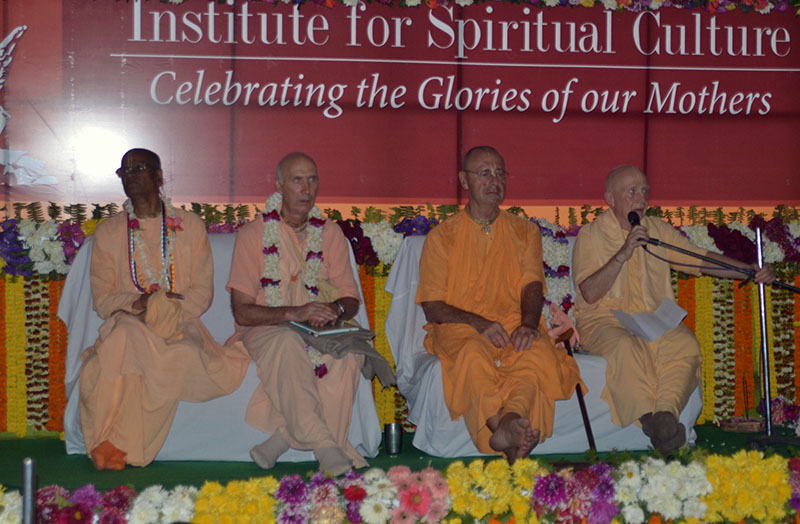
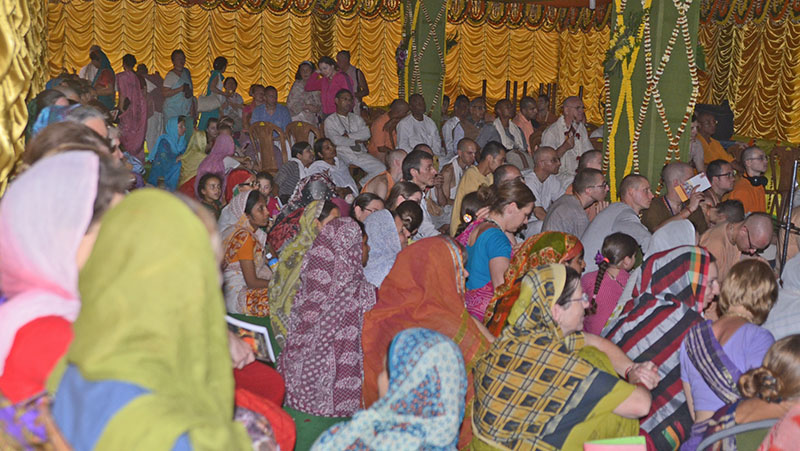
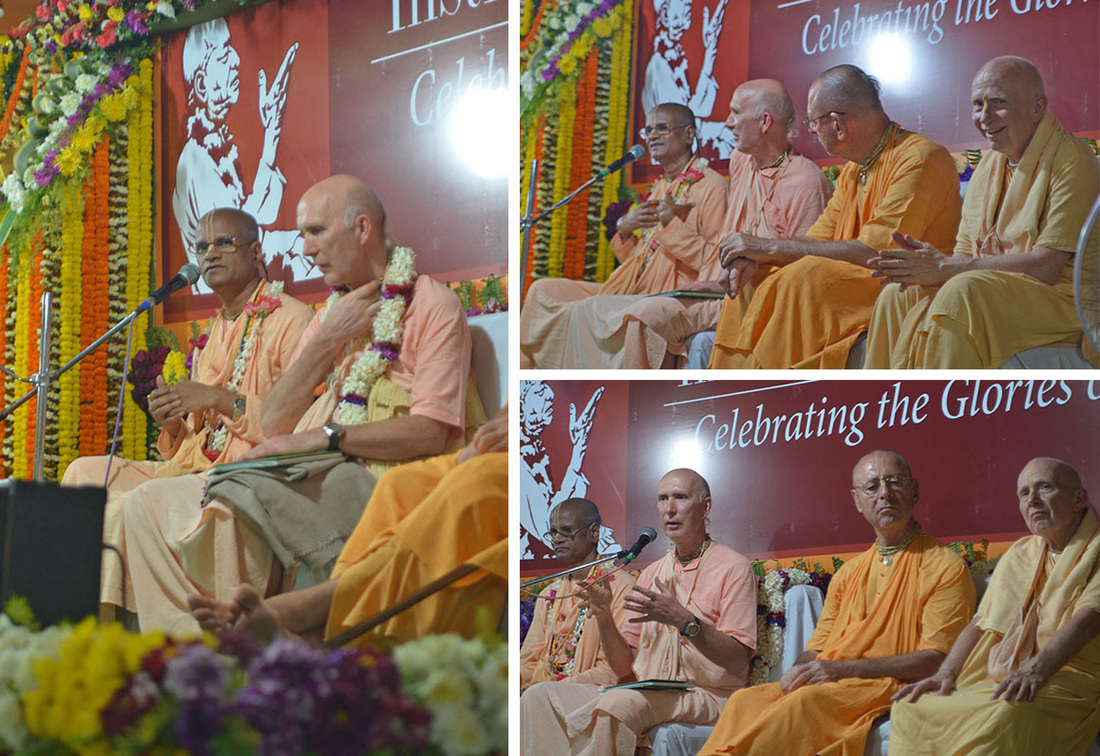
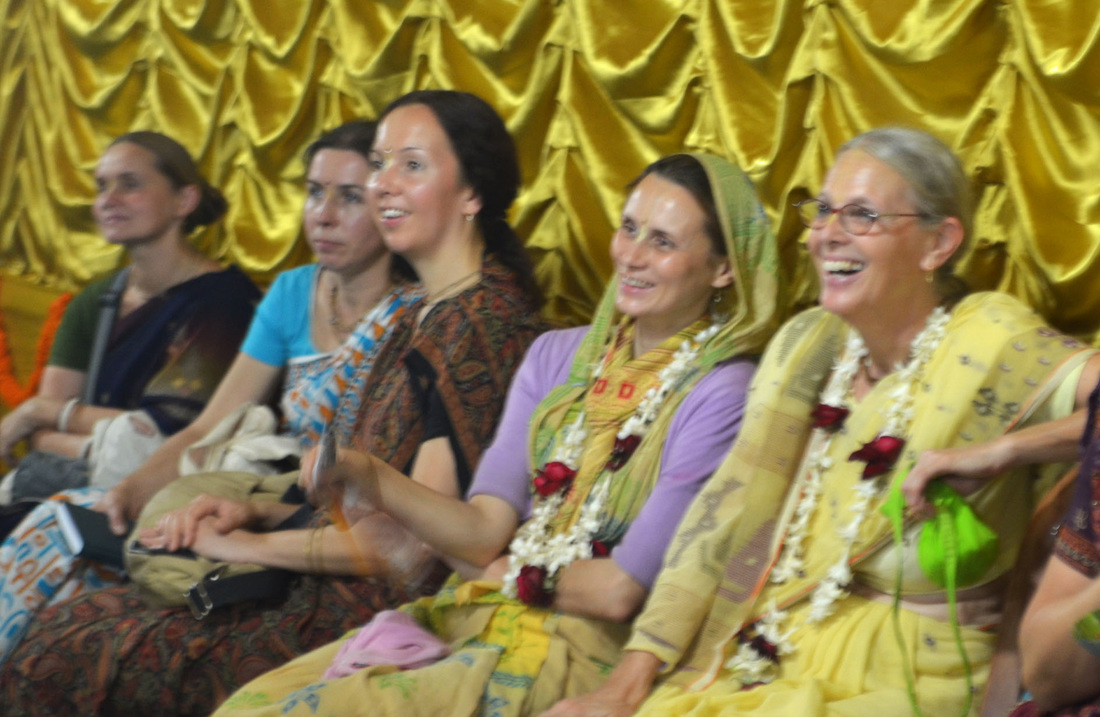
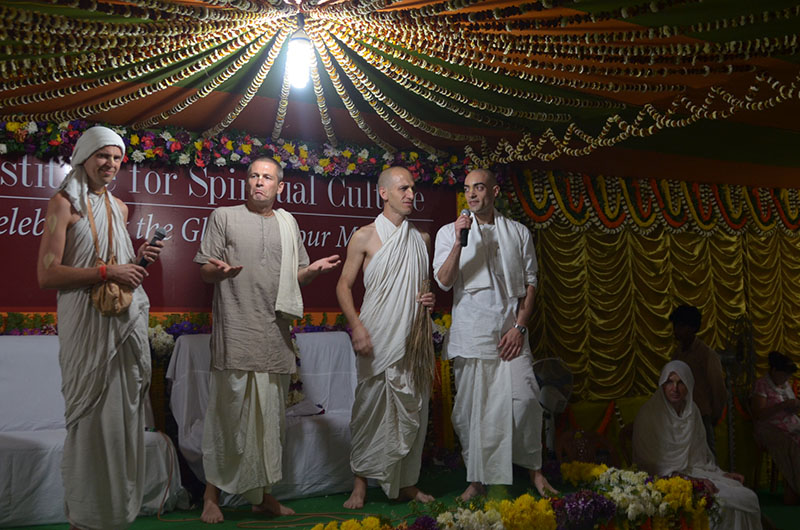
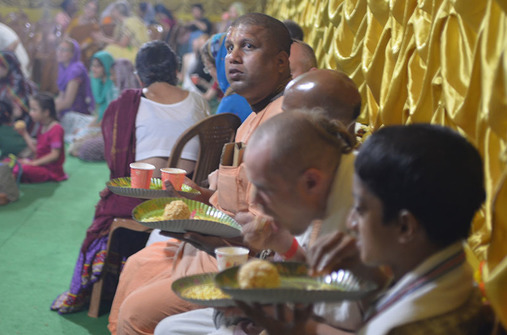
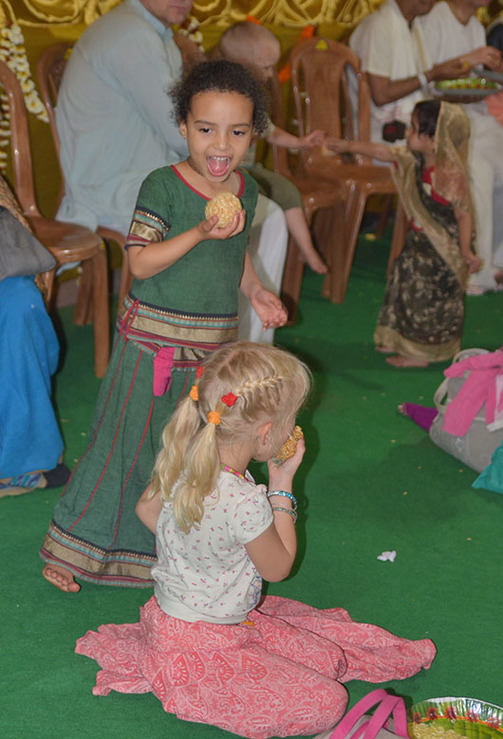
 RSS Feed
RSS Feed
